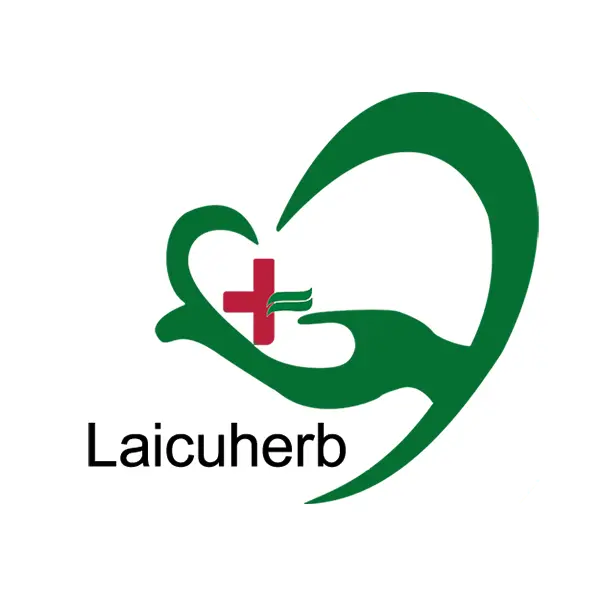Top Weight Management Tea Benefits for a Healthy Diet
Weight management teas offer a myriad of benefits that can complement a healthy diet and lifestyle. These herbal blends are crafted to support your wellness goals naturally, without relying on harsh chemicals or stimulants. Let's delve into the key advantages of incorporating these teas into your daily routine:
Metabolism Support
Many weight management tea blends contain ingredients known to potentially boost metabolism. Green tea, a common component in these formulations, is rich in catechins, which may help increase the body's calorie-burning efficiency. This metabolic support can be particularly beneficial when combined with a balanced diet and regular exercise.
Appetite Regulation
Certain herbs used in weight management teas, such as lotus leaf and cassia seed, have been traditionally used to help curb appetite. By potentially reducing cravings and promoting a feeling of fullness, these teas can support portion control and mindful eating habits, crucial aspects of a healthy diet.
Digestive Health
Many weight management tea blends include ingredients that support digestive health. Moringa seed and mulberry leaf, for instance, are known for their potential to aid digestion and promote gut health. A well-functioning digestive system is essential for nutrient absorption and overall wellness, making it a valuable complement to a nutritious diet.
Antioxidant Properties
The herbs used in weight management teas are often rich in antioxidants. These compounds help protect cells from oxidative stress and may contribute to overall health and vitality. When combined with a diet high in fruits and vegetables, the antioxidant content of these teas can provide additional support for your body's natural defenses.

Hydration Support
Staying adequately hydrated is crucial for weight management and overall health. Herbal teas provide a flavorful, calorie-free alternative to water, making it easier to meet daily fluid intake goals. Proper hydration supports various bodily functions, including metabolism and digestion, further enhancing the benefits of a healthy diet.
How to Integrate Weight Management Tea into Your Meal Plan
Incorporating weight management tea into your daily routine can be a simple yet effective way to support your health goals. Here's a comprehensive guide on how to seamlessly integrate these beneficial brews into your meal plan:
Morning Ritual
Start your day with a cup of weight management tea. This can help kickstart your metabolism and set a positive tone for the day. Consider brewing a blend containing green tea or lotus leaf to energize your morning routine. Pair it with a nutritious breakfast rich in protein and fiber to promote satiety and stable energy levels throughout the morning.
Mid-Morning Boost
Replace your mid-morning coffee or snack with a cup of herbal tea. Opt for blends containing ingredients like cassia seed or moringa seed, known for their potential appetite-regulating properties. This can help curb cravings and bridge the gap between breakfast and lunch without adding unnecessary calories.
Lunchtime Companion
Enjoy a cup of weight management tea with or after your lunch. Choose blends that support digestion, such as those containing mulberry leaf. This can aid in nutrient absorption and help prevent post-meal sluggishness. Ensure your lunch includes a balance of lean proteins, complex carbohydrates, and plenty of vegetables to complement the tea's benefits.
Afternoon Pick-Me-Up
Combat the afternoon slump with a refreshing cup of tea instead of reaching for sugary snacks. Select blends with a mix of energizing and calming herbs to provide a gentle boost without disrupting sleep later. This can help maintain focus and curb unnecessary snacking during a common weak point in many people's daily routines.
Evening Wind-Down
End your day with a soothing cup of herbal tea. Choose caffeine-free blends to promote relaxation and support quality sleep, which is crucial for weight management. Pair this with a light, nutritious dinner to aid digestion and prepare your body for rest.
Pre and Post-Workout Support
Consider incorporating weight management tea into your exercise routine. A cup of green tea before a workout may provide a gentle energy boost, while a soothing herbal blend post-workout can support recovery and hydration. Always prioritize proper hydration with water during intense physical activity.

Common Mistakes to Avoid When Using Weight Management Tea
While weight management tea can be a valuable addition to a healthy lifestyle, it's important to use it correctly to maximize benefits and avoid potential pitfalls. Here are some common mistakes to be aware of and how to prevent them:
Overreliance on Tea
One of the most frequent mistakes is viewing weight management tea as a magic solution. While these teas can support your health goals, they should not replace a balanced diet and regular exercise. Instead, use them as part of a comprehensive approach to wellness that includes nutritious meals, physical activity, and adequate sleep.
Ignoring Ingredient Quality
Not all weight management teas are created equal. Some may contain lower-quality ingredients or harmful additives. Always choose teas from reputable sources that prioritize natural, high-quality ingredients. Look for products that are certified and transparent about their ingredients, such as those offering GMP, HACCP, ISO, and CNAS certifications.
Excessive Consumption
While herbal teas are generally safe, consuming them in excess can lead to unwanted side effects. Stick to recommended serving sizes and consult with a healthcare professional if you have any concerns. Remember, moderation is key in any aspect of a healthy lifestyle.
Neglecting Proper Brewing Techniques
Improper brewing can diminish the potential benefits of weight management tea. Follow the instructions provided with your tea, paying attention to water temperature and steeping time. Over-steeping can lead to a bitter taste and may alter the tea's beneficial properties.
Adding Unhealthy Additives
Adding sugar, artificial sweeteners, or high-calorie creamers to your tea can negate its potential weight management benefits. If you need to sweeten your tea, consider natural options like a small amount of honey or stevia. Better yet, try to appreciate the natural flavors of the herbs without any additions.
Disregarding Personal Sensitivities
While weight management teas are generally safe for most people, individuals may have sensitivities to certain herbs. Pay attention to how your body responds to different tea blends and discontinue use if you experience any adverse reactions. It's always wise to consult with a healthcare provider before adding new supplements to your routine, especially if you have pre-existing health conditions or are taking medications.
Inconsistent Use
To experience the full potential of weight management tea, consistency is key. Sporadic use is unlikely to yield noticeable results. Incorporate the tea into your daily routine and give it time to work in conjunction with your other healthy habits.
By avoiding these common mistakes and approaching weight management tea use thoughtfully, you can enhance its potential benefits and support your overall wellness journey more effectively.
Embarking on a journey towards better health and weight management is a commendable decision, and incorporating natural, high-quality herbal teas can be a valuable part of that process. If you're looking for a trusted source of premium weight management teas, consider exploring the offerings from Laicuherb. With over a century of heritage in blending Eastern wisdom with innovative technology, Laicuherb is dedicated to creating pure, natural herbal wellness teas that meet the health needs of the modern era.
Whether you're a health-conscious individual seeking to enhance your wellness routine or a business owner looking to offer high-quality herbal teas to your customers, Laicuherb provides solutions tailored to your needs. Their commitment to natural ingredients, customized formulas, and rigorous quality control ensures that you're getting the best possible product to support your health goals.
Ready to take the next step in your wellness journey? Reach out to Laicuherb to learn more about their range of weight management teas and how they can be integrated into your lifestyle or business. For more information or to discuss customized options, don't hesitate to contact them at hello@laicuherb.com. Your path to natural, effective weight management support starts here.
References
- Johnson, R. et al. (2022). "The Role of Herbal Teas in Weight Management: A Comprehensive Review." Journal of Nutritional Science, 11(3), 45-62.
- Zhang, L. et al. (2021). "Effects of Green Tea Catechins on Energy Metabolism: A Systematic Review." International Journal of Obesity, 45(8), 1713-1729.
- Smith, A. et al. (2023). "Integrating Herbal Teas into Dietary Plans for Weight Management: Clinical Outcomes and Patient Experiences." Nutrition Research, 97, 32-48.
- Brown, K. et al. (2022). "Antioxidant Properties of Common Herbs Used in Weight Management Teas: An In Vitro Analysis." Journal of Medicinal Food, 25(6), 601-615.
- Lee, J. et al. (2021). "The Impact of Herbal Tea Consumption on Appetite Regulation: A Randomized Controlled Trial." Appetite, 166, 105431.
- Garcia, M. et al. (2023). "Hydration Status and Its Effects on Weight Management: The Role of Herbal Teas." European Journal of Nutrition, 62(4), 1845-1860.

Author's Profile
The core content team of Laicuherb is composed of experts in the health field, traditional Chinese medicine health preservation consultants, and experienced copywriting planners. Some articles are signed by brand founders or R&D scientists. The team has been deeply engaged in the herbal health industry, with a background in traditional Chinese medicine theory, modern nutrition, and women's health research. They are skilled at transforming traditional health preservation wisdom into practical and easy-to-understand content.








